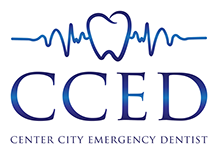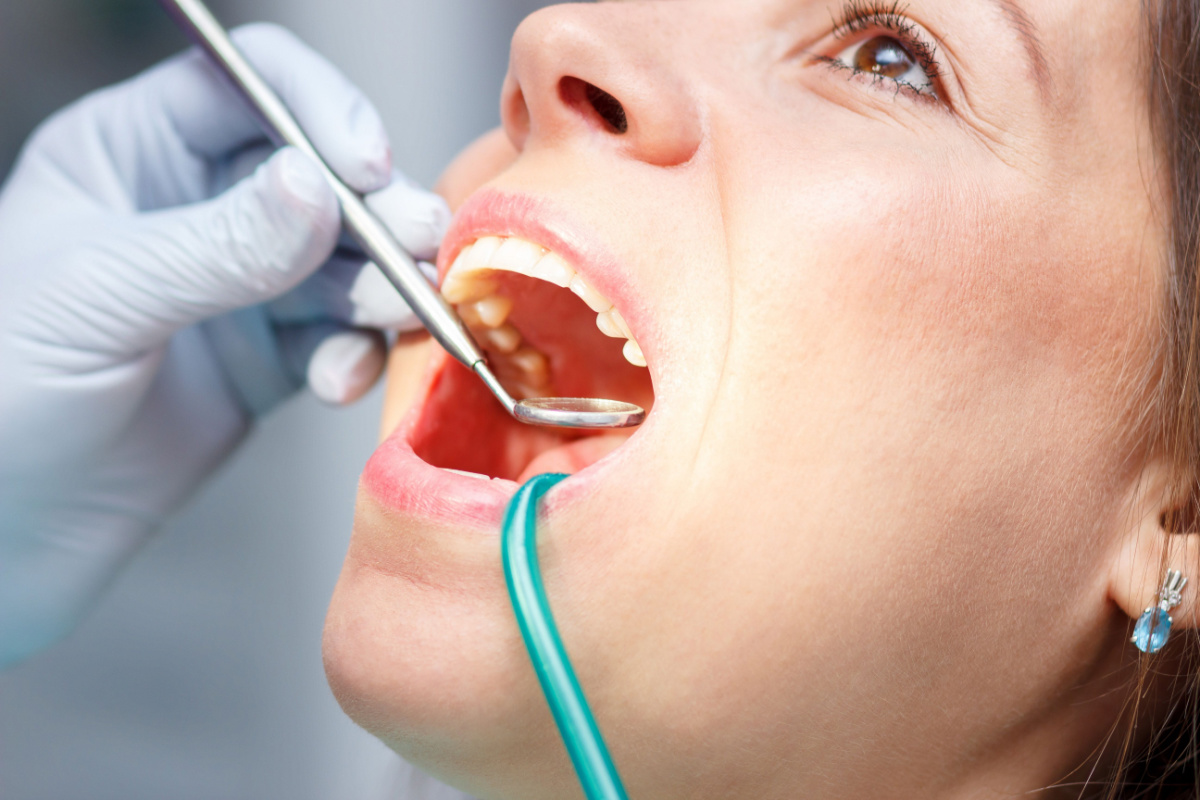Toothaches are a common phenomenon for children and adults alike. As a leading 24-hour dentist in Philadelphia, PA, Center City Emergency Dentist has years of experience treating toothaches and other dental issues. If you’re experiencing a toothache, we advise you to come into our office as soon as possible for treatment.
Below, we’ve shed a little light on some of the leading causes of toothaches and what you can do to relieve the pain at home until your appointment.
Tooth Decay
Cavities are among the most common dental health issues for many individuals in the United States. Many cavities can have little to no symptoms at first but can quickly become painful and disastrous to your oral health. Getting into our office as soon as possible will help prevent more severe damage. However, until you can get into our office, it’s essential to keep your teeth thoroughly clean by brushing and flossing.
Tooth Fracture
If you’ve ever had a tooth chip or crack from something, you understand the sheer amount of pain that is typically associated with it. In the event of a fracture, seeing a dentist as soon as possible is critical to preventing further painful issues such as cavities and abscesses.
Until you get into our office, the pain may be unbearable. The most effective way to treat the pain is with over-the-counter pain medications.
Abscessed Tooth
The infection of the pulp within a tooth is referred to as an abscess. These infections are often caused by severe tooth decay or fractures; however, gum disease is also a possible cause of this dental health emergency. Signs that this is the cause of your toothache include a gross taste in your mouth and possibly a bump on the affected tooth. These are caused by the build-up of pus within the tooth’s pulp. Abscessed teeth cannot be adequately treated without a professional, so it is important to go to your dentist if you exhibit signs.
Gum Disease
In its early stages, gum disease is referred to as gingivitis. The gums may become red and swollen and bleed easily. At this stage, discomfort is typically minimal, but if left untreated, gingivitis can progress to a more serious form of gum disease called periodontitis.
Periodontitis affects the area of your mouth just below the gum line, in the tiny spaces between your teeth and gums known as periodontal pockets. One of the key symptoms of periodontitis is tooth pain. This happens because the gums have receded or pulled away from the teeth, exposing the roots. Unlike the crowns of your teeth, the roots do not have a protective enamel layer, making them highly sensitive to temperatures and touch. This sensitivity can cause significant discomfort and pain, especially when eating or drinking hot or cold items.
Teeth Grinding
One of the primary reasons that teeth grinding can cause tooth pain is due to the excessive force it places on the teeth. This constant pressure can wear down the enamel, the outermost protective layer of your teeth, leading to increased sensitivity and pain. When the enamel is worn away, the dentin (the layer beneath the enamel) is exposed, which contains tiny tubes that lead to the tooth’s nerve center. Exposure to these tubes can result in sensitivity to hot, cold, sweet, or acidic foods and drinks.
Furthermore, continuous grinding can lead to tiny fractures in your teeth. These small cracks may not be immediately visible or cause discomfort, but over time, they can deepen, causing severe toothache, sensitivity, and even potential tooth loss.
Impacted Teeth
Impacted teeth refer to teeth that have been blocked from erupting or growing into their correct position, usually due to a lack of space in the mouth. This condition is most commonly associated with wisdom teeth, but it may impact any tooth. When a tooth is impacted, it can lead to several complications, one of which is tooth pain.
The pain associated with impacted teeth arises from various factors. Firstly, as the impacted tooth tries to make its way through the gum but is unable to due to insufficient space or improper positioning, it can exert pressure on adjacent teeth and tissues. Secondly, impacted teeth can lead to inflammation and infection. The partial eruption of an impacted tooth can create an opening in the gum where bacteria can enter, leading to gum disease or a dental abscess. Both conditions are painful and require immediate dental attention.
Effective Home Remedies to Temporarily Lessen Toothache Pain
Toothaches can be debilitating, but while you wait for your dental appointment, you can use several home remedies to alleviate the pain. These remedies are often recommended by doctors and medical professionals, but remember your body, health, and other conditions before jumping the gun. When in doubt, talk to a medical professional.
- Saltwater Rinse: A saltwater rinse is an effective first-line treatment for toothache pain. Saltwater is a natural disinfectant that can help loosen food particles and debris stuck between your teeth. To use this remedy, mix half a teaspoon of table salt into a warm glass of water and swish the solution around in your mouth gently for about 30 seconds before spitting it out.
- Cold Compress or Ice Pack: Applying a cold compress or ice pack to the affected area can help numb the nerves, reducing inflammation and pain.
- Painkillers: Over-the-counter anti-inflammatory drugs such as ibuprofen, Advil, Motrin, or naproxen can effectively reduce inflammation and provide relief from dental pain.
- Garlic: Garlic has been recognized for its medicinal properties, which include antibacterial benefits. Crushing a garlic clove to create a paste and applying it to the affected area can help reduce pain.
- Peppermint Tea: Peppermint has numbing properties that can soothe sensitive gums and lessen pain.
- Baking Soda: Known for its anti-inflammatory and antibacterial properties, baking soda can relieve pain and clean the infected area.
- Over-the-counter Gels: Certain gels available over-the-counter can be applied directly to your teeth for pain relief.
- Aspirin: Crushed baby aspirin applied directly to the painful area in your mouth can also provide relief.
While these remedies can provide temporary relief, they are not permanent solutions. If you’re experiencing persistent tooth pain, it’s important to schedule a visit with your dentist to address the underlying issue causing the discomfort.
Take Control of Your Dental Health — Visit Center City Emergency Dentist to Remedy Your Tooth Pain
We suggest putting a cold compress on the affected area to relieve the potential sharp pain until you get in for emergency dental service, but that won’t solve your issues. Remember, these home remedies are just temporary solutions. The real key to overcoming toothache pain is addressing the root cause, which often requires professional dental care. So, don’t wait for the pain to become unbearable.
If you are suffering from a toothache, please contact us today to schedule an appointment or come in for an emergency visit! Your oral health is an integral part of your overall well-being, so take charge today and pave the way for a pain-free, healthier smile.

